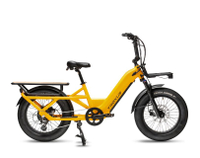Troxus Lynx Cargo E-Bike reviewed: a robust, heavy-duty cargo hauler for a reasonable price
With the Lynx, Troxus showcases some unique technology that impresses but would perhaps be better suited for a different type of e-bike
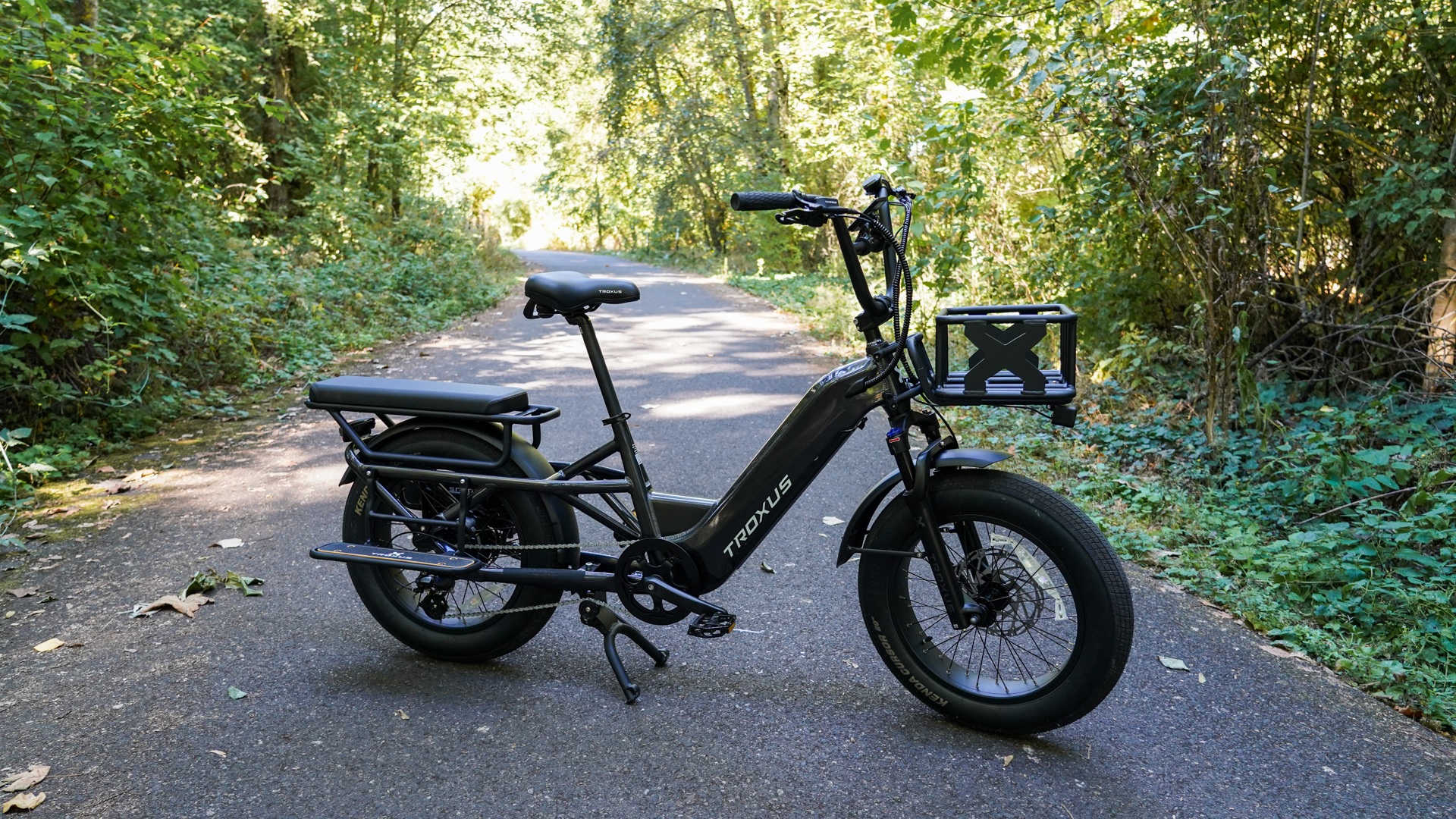
The Troxus Lynx Cargo E-Bike shines with its robust design, advanced features, and impressive cargo capacity. However, its bulky frame and limited manoeuvrability may deter urban riders looking for a daily commuter.
-
+
UL Certified
-
+
Decent battery life
-
+
Robust
-
+
Versatile
-
+
Accessories available to customize carrying capacity
-
+
Integrated lights
-
+
Has dealers, so one can test ride before buying
-
+
Thu-axles
-
+
Switchable between cadence sensor or torque sensor mode
-
-
Unwieldy
-
-
Kickstand isn’t rubberised
-
-
Chain frequently falls off chain tensioners
-
-
Not a good option for small living or parking space
You can trust Cycling Weekly.

Here at Cycling Weekly, we are big fans of e-bikes and electric cargo bikes, especially. But it’s becoming increasingly difficult to decide which bikes to test, let alone buy. In today’s rapidly growing e-bike market, new brands seem to pop up overnight, often following a familiar formula: a small leadership team based in the U.S. or Europe with manufacturing outsourced to Asia. These brands often embrace a direct-to-consumer model, offering prospective buyers little more than a few online reviews, tech specs and promotional videos before asking them to hit that “buy now” button. We receive countless pitches from e-bike brands hungry for exposure, and it’s becoming increasingly difficult to decide which new brands are worth a look.
Troxus, yet another young e-bike brand, stood out among the bunch thanks to its dealer network. While many new e-bike brands rely on a purely digital shopping experience, Troxus is working with bike shops around the country to allow potential buyers to see, touch, and, most importantly, test-ride their bikes before committing. Additionally, if a store is nearby, customers can buy a bike online and pick it up, often the same day, at their local dealer – services that are becoming increasingly rare in this online-first market and are often reserved for big-name brands.
For us, picking up the bike in person wasn’t just convenient, it also gave us the chance to connect with the brand’s local dealer and discover a small, community-focused bike shop we hadn’t known about before.
Troxus, I learned, started as an electric four-wheel ATV (all-terrain vehicle) and electric scooter company before expanding into the e-bike market in 2019. The company does not rely on third-party manufacturing; instead, Troxus prides itself on owning its production facilities and maintaining control over the assembly and quality of its products. The brand’s design and management team is California-based and offers U.S.-based support and repair services as well. Troxus currently offers five model families, serving recreational mountain bikers, commuters and families looking for car-free transportation options.
Our introduction to Troxus comes through the brand’s self-proclaimed “ultimate two-wheeled cargo hauler,” the Lynx Cargo E-bike. Let’s dive in.
The Troxus Lynx Cargo E-bike
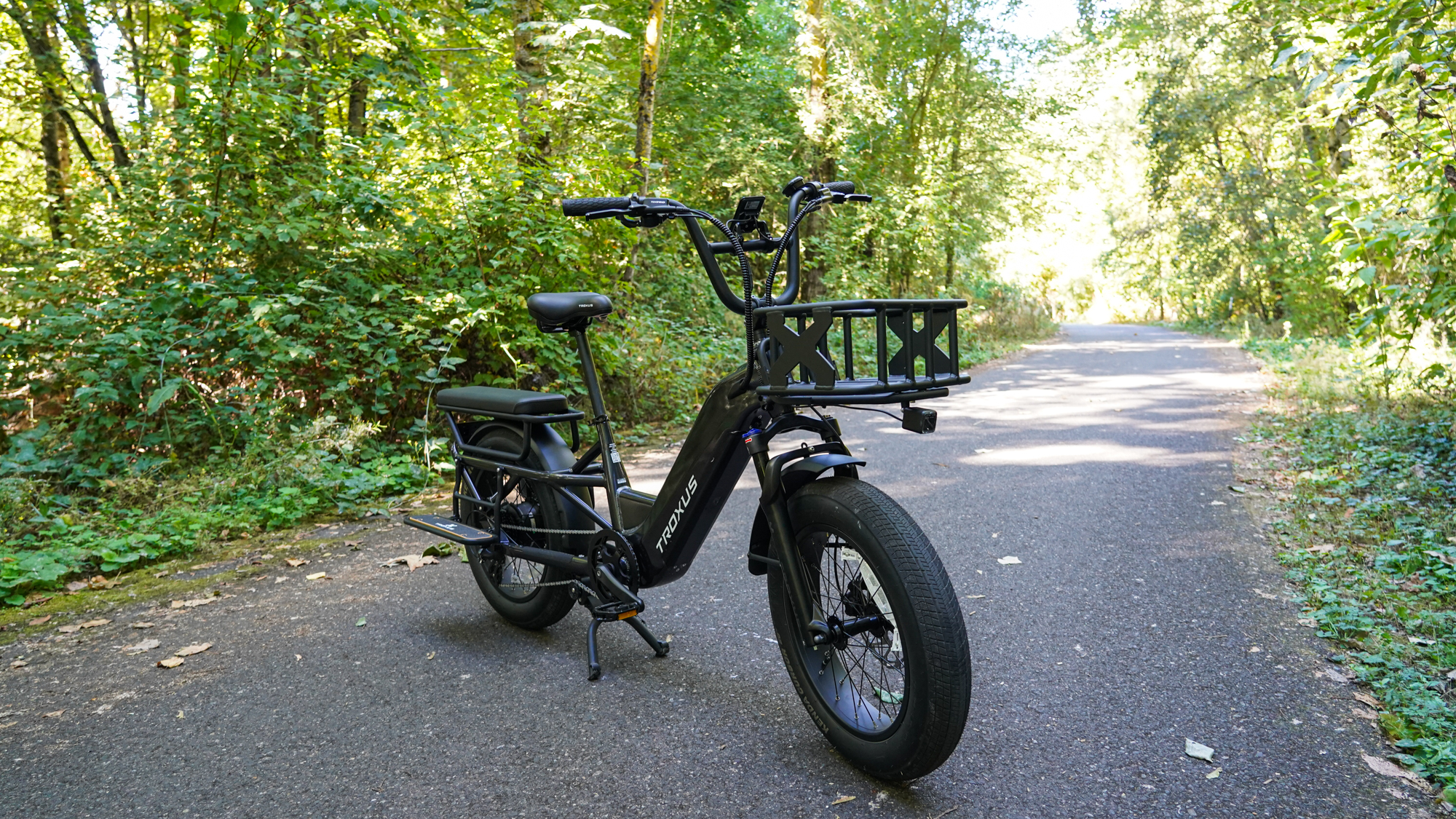
The Troxus Lynx Cargo E-bike is a long-tail cargo bike –meaning that the bulk of the cargo is meant to be carried at the rear– made of a burly aluminium frame with a nice glossy paint job and paired with a suspension fork and 20” wheels. The bike sports a step-thru frame with the UL-certified battery housed inside the sizable downtube. The bike is powered by a Bafang rear hub motor, which offers both pedal-assist functionality and throttle control.
The Lynx comes with a rear and front cargo rack, fenders (mudguards), integrated lights, a beefy kickstand, a handlebar control and a large display. Additional accessories, including the rear seat pad, runner boards and basket, as seen on the review bike, are available for purchase.
Features overview:
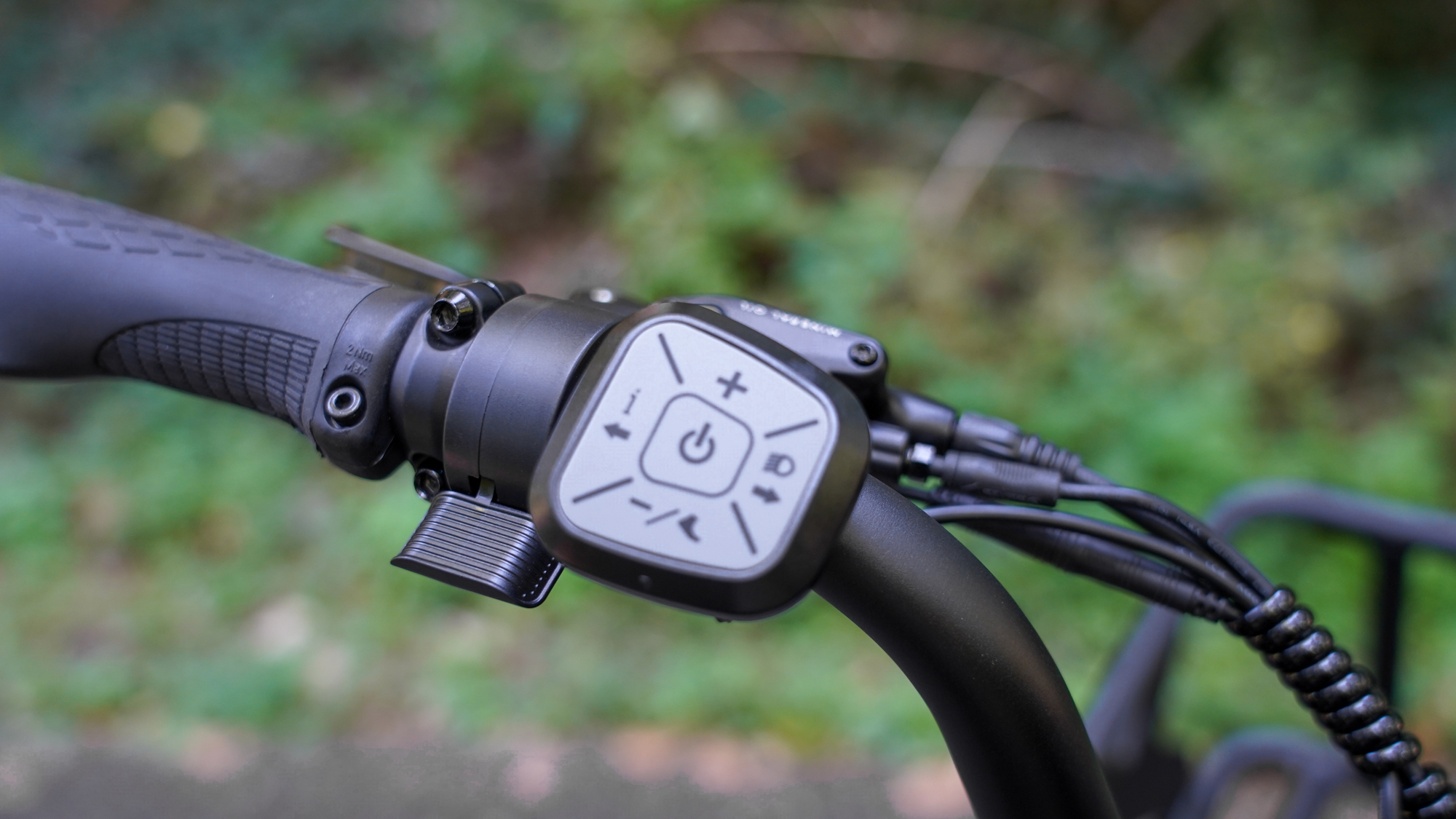
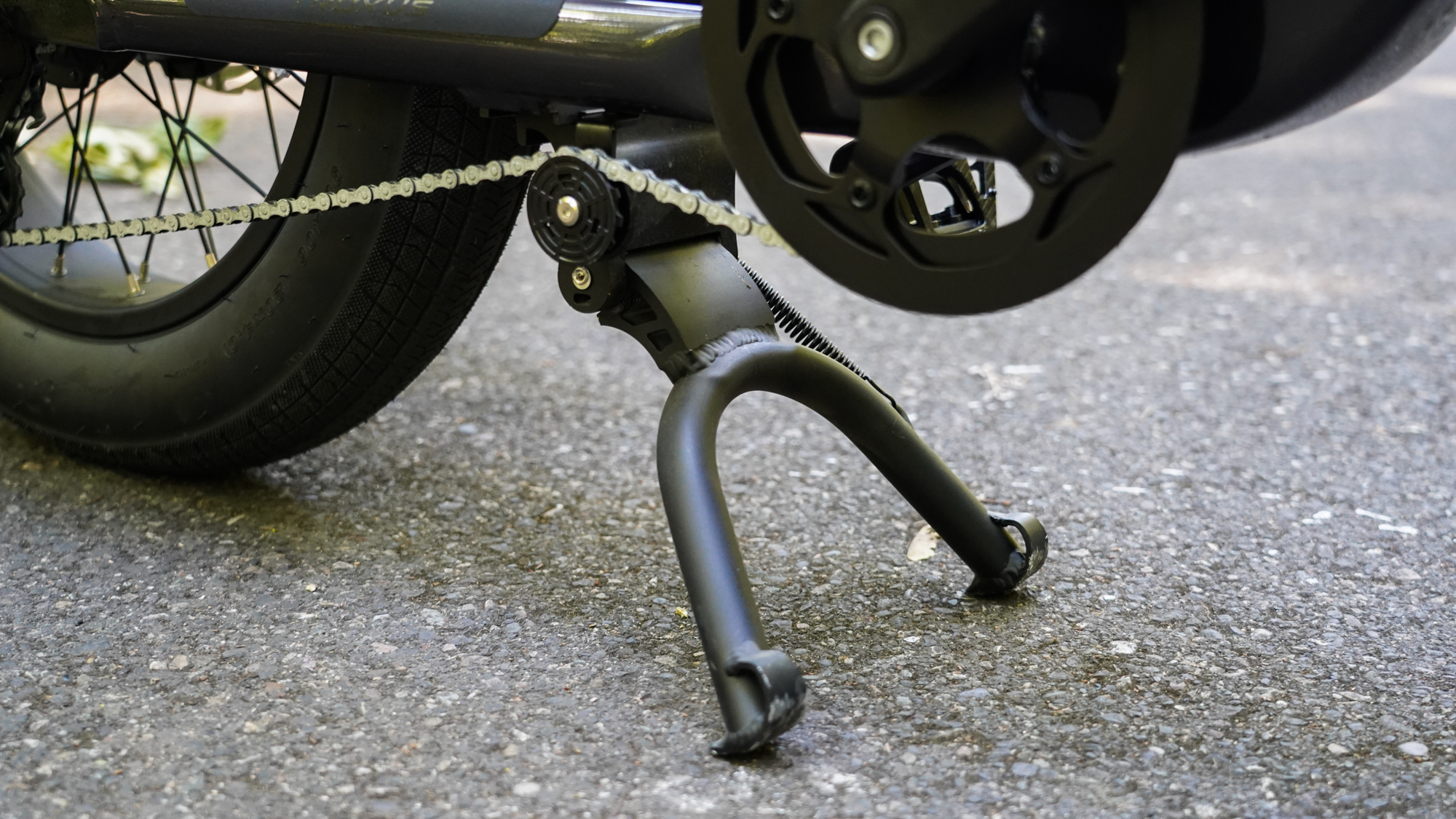
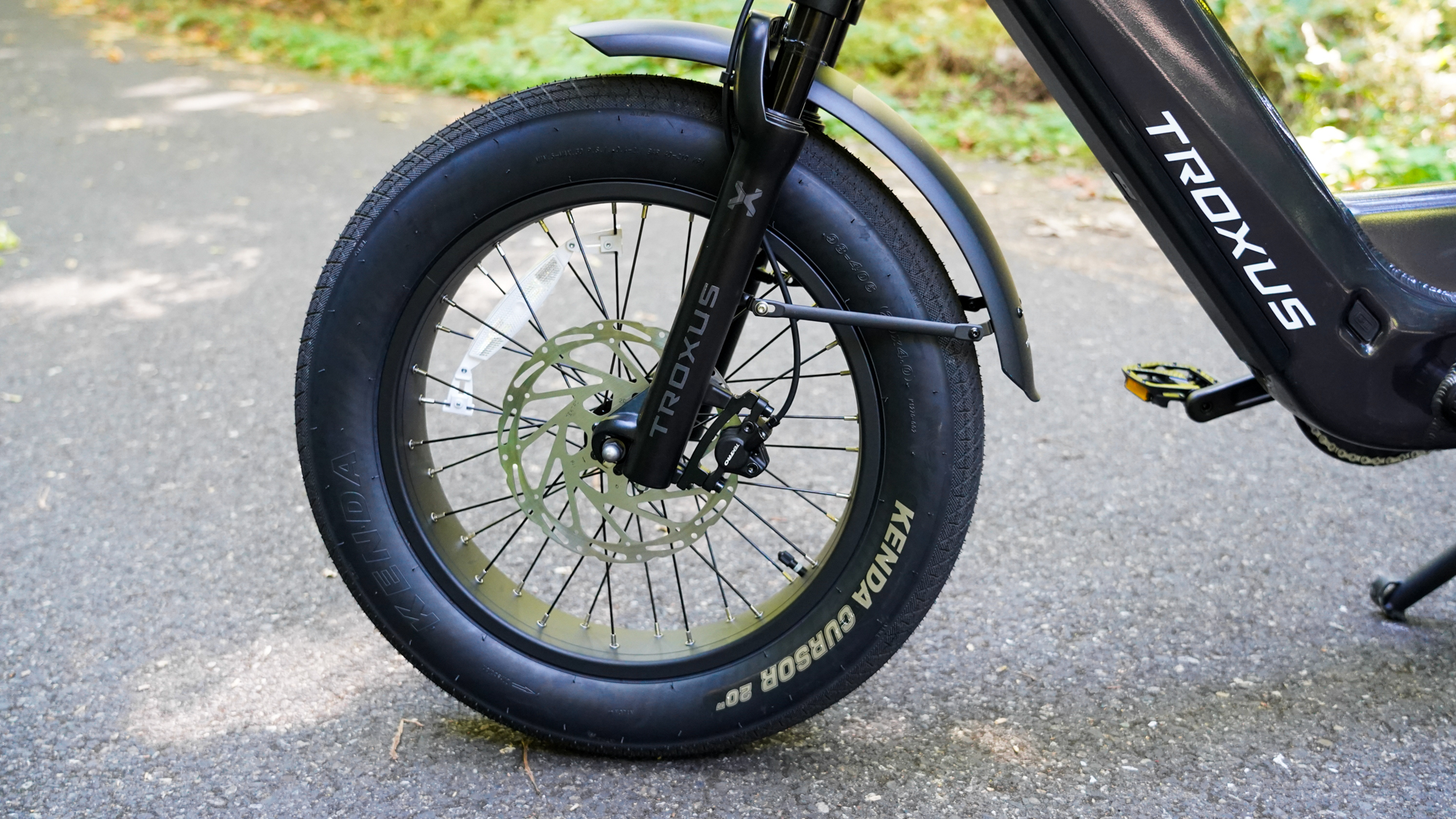
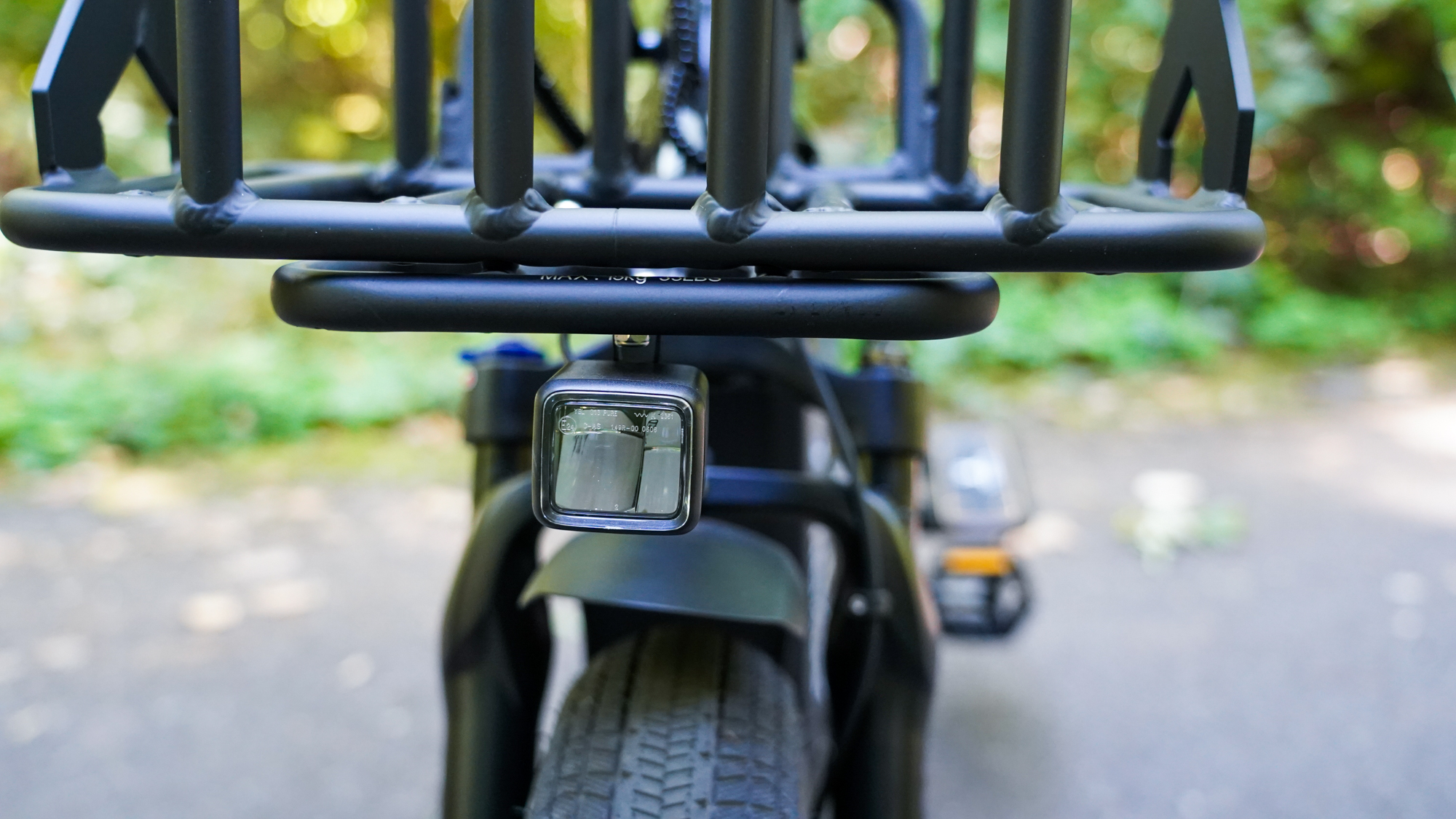
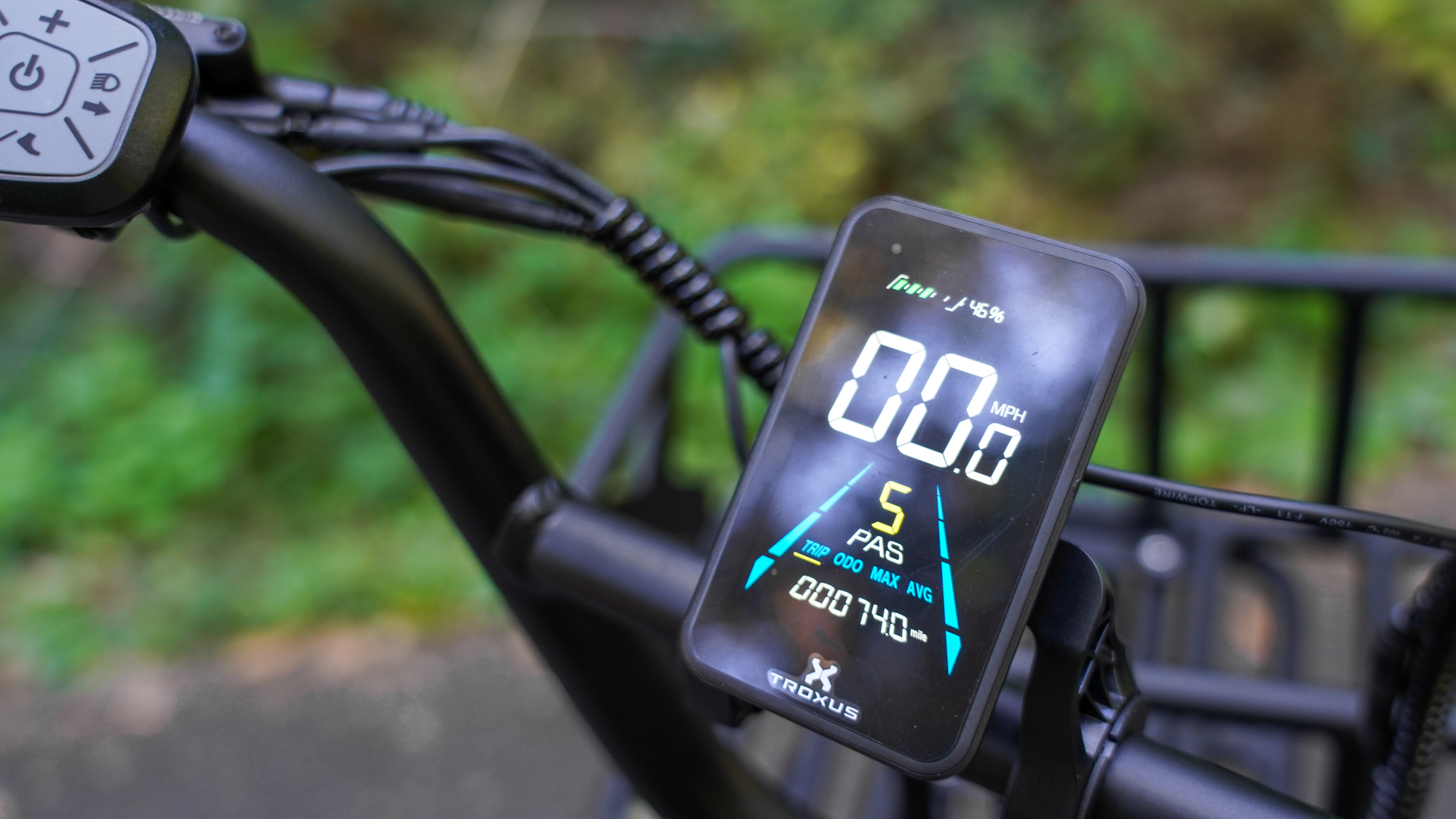
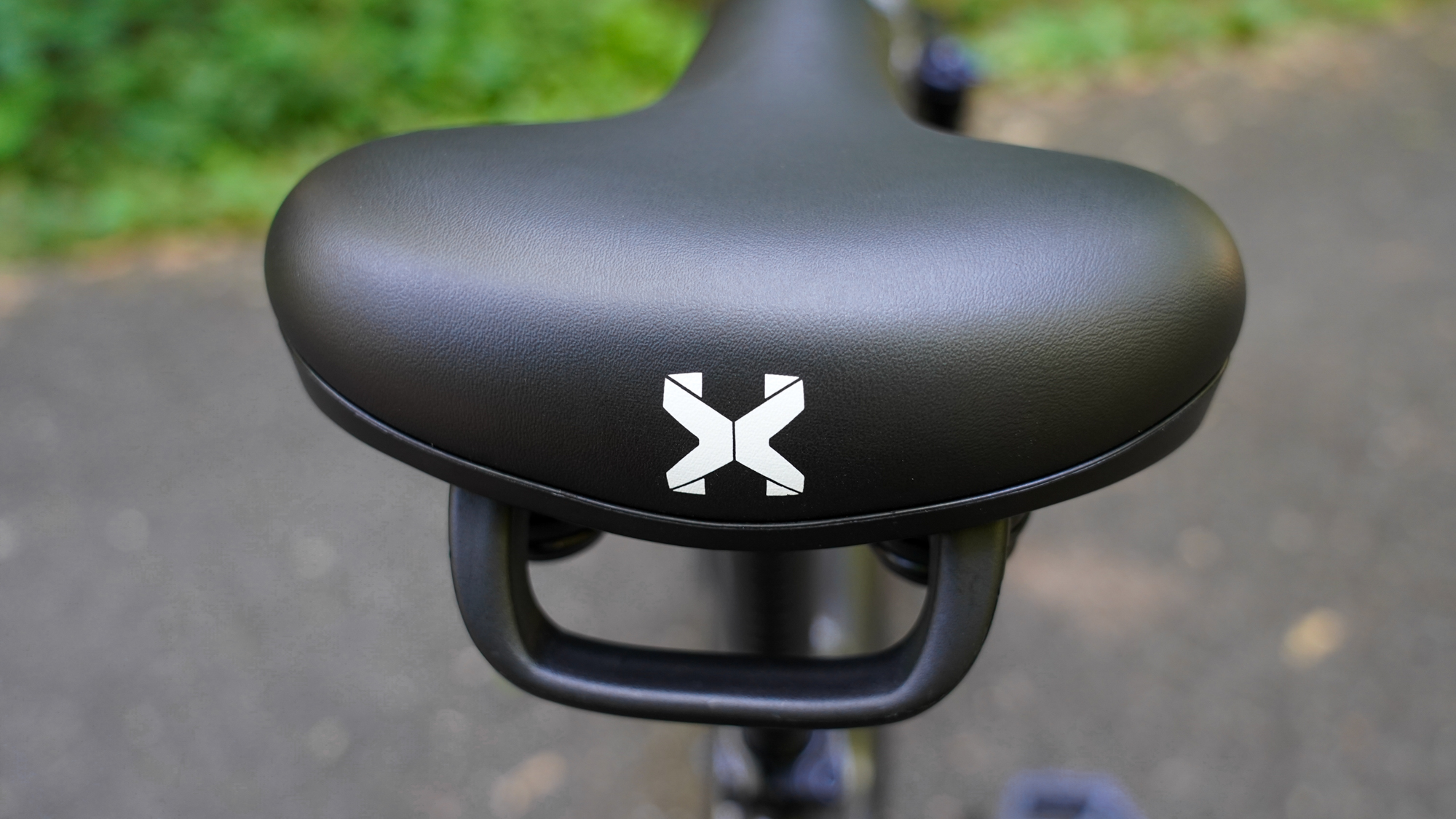
- 6061 aluminium frame
- Shimano 8-speed shifting 46T x 12-32T
- Hub-based motor: Bafang 48V 750W
- 5 Level Pedal Assist
- Thumb throttle
- Tektro Hydraulic Brakes w/ massive 203mm/180mm rotors
- Troxus suspension fork with 80mm travel
- Kenda Cursor 20” x 4” tyres
- Front and rear rack included; more accessories available aftermarket
- Carrying capacity: up to 500 lbs
- Max speed: 20lbs
- Max torque: 86nm
- UL-2849 Certified
- Battery: 960Wh range / Samsung Cells 48v 20Ah
- Battery is removable and lockable
- Large and clear colour display
- Multi-functional handlebar remote with USB charging
- Integrated lights
- Turn signals
- Unique, switchable mode between torque and cadence sensors
- 5yr/ 5K mile “Fender to Fender” warranty
Switchable torque and cadence sensor technology

With the press of a button, the rider can toggle between cadence sensor mode or torque mode.
A standout feature of the Lynx is its switchable torque and cadence sensor technology, which Troxus claims is the first of its kind in the e-bike market.
This technology aims to provide a smoother, more natural, and customizable ride experience by allowing the rider to control how and when motor assistance engages.
Cadence Sensor: This common type of motor assistance, especially on lower-end e-bikes, triggers the motor when it detects crank movement. The motor assistance is at a preset level and does not vary based on pedalling effort. You can adjust the assist level (from 1 to 5) via the display or handlebar controller, but the assistance is either on or off.
Torque Sensor: This mode measures the actual force (torque) you're applying to the pedals. The motor provides more assistance the harder you pedal, making the ride feel more like a traditional bike with a boost when needed. This mode is beneficial for preserving battery life or enhancing your workout.
The ability to toggle between these two modes allows riders to customise their experience based on cargo load, battery preservation or desired exercise level. For instance, cadence mode is useful for carrying heavy loads or tackling hills, while torque mode may be preferred for a more natural ride feel or efficient battery use. You may even want to switch between the modes on the fly. For example, when you’re carrying heavy cargo – humans or otherwise, it can be tricky to get started. In this case, you’d likely shift into an easy gear and make use of the cadence sensor mode. Once up to speed, you could opt to toggle into torque mode for a more pedal control.
How it rides
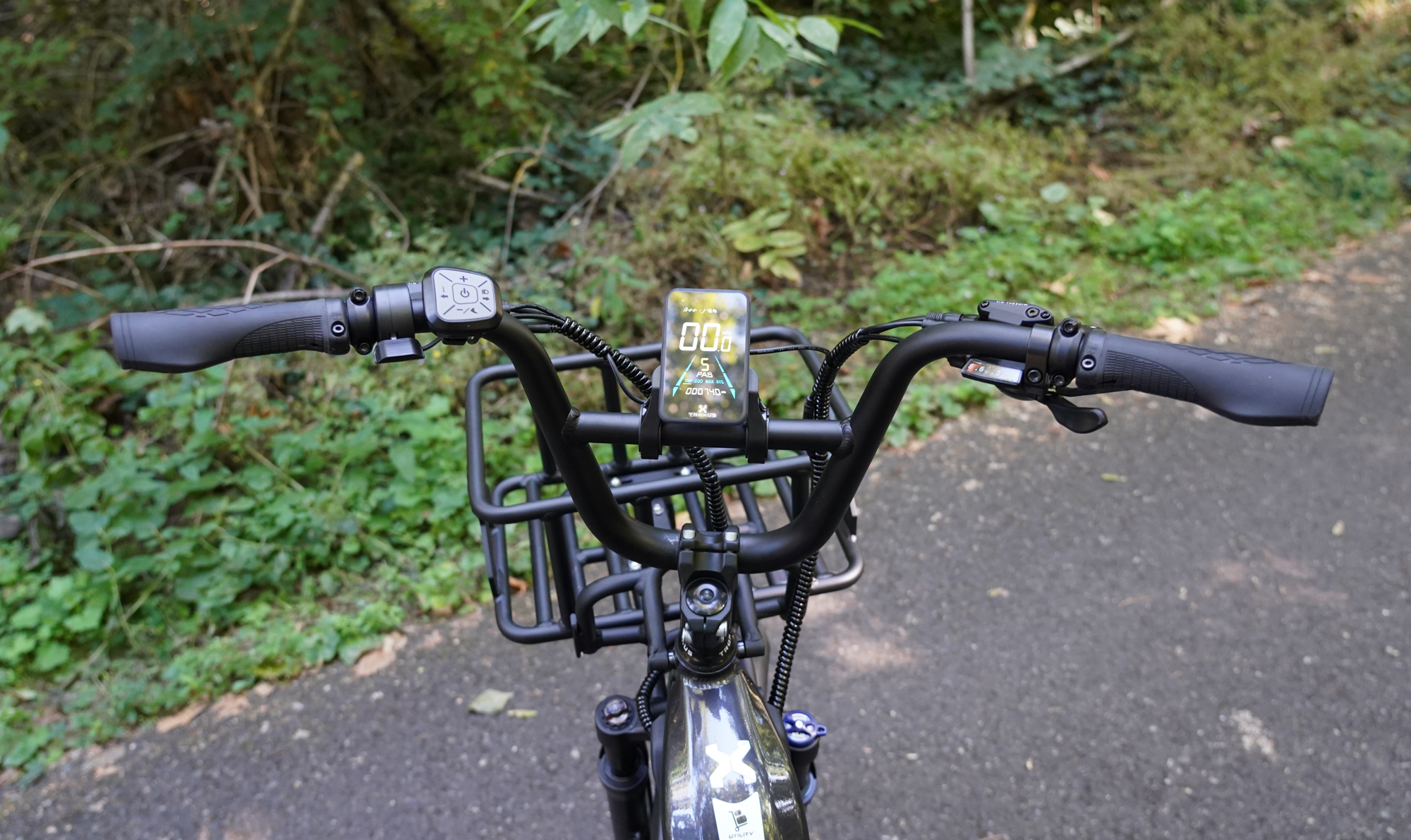
The Lynx’s display is large and easy to read, and the controls are intuitive. Safety features like brake lights and turn signals, rare at this price point, are welcome additions.
I picked up my Troxus Lynx test bike at Outer Rim in Portland, Oregon, and rode the 18 miles home in its stock state. The requested accessories –a rear seat pad, running boards and front basket– were sent to my home so I could get the ‘full customer experience’ of installing these myself, like a customer would. Of course, a local Troxus dealer would be happy to install any accessories for you. However, the installation truly was a breeze.
The bike comes with front and rear racks already installed that can carry a combined weight of 135lbs. The rear rack measures 60cm in length, which offers plenty of cargo space and could seat two small children quite comfortably. For those who don’t want to go all in on the safety rails accessory, the seat features a handgrip in the rear for a passenger to hold onto, which is a nice touch.
The Troxus basket, which can be mounted on either rack, is a great addition for hauling groceries or gear, and like the racks, it's built from sturdy metal. I use a cargo bike to minimise short car trips like carting around my nephew, running errands or grocery shopping. The seat pad adds comfort for passengers, while the running boards provide a secure platform with their anti-slip coating. A neat design element of the Lynx is that the running boards fold up when not in use, to save on space.
In terms of performance, the Lynx handled all the tasks I threw at it, and felt capable of handling a lot more. I don’t have a daily commute but the Lynx would be a reliable car alternative with a battery that consistently reached its 80-90 mile capacity. I never challenged the 500-pound max cargo capacity but with its robust construction, I have no doubt that the bike could handle a heavy with ease.
The Lynx is equipped with five different levels of pedal assist up to 20 mph, along with a thumb throttle for a little extra oomph to get going. Paired with the 8-speed drivetrain, I never felt under-geared.
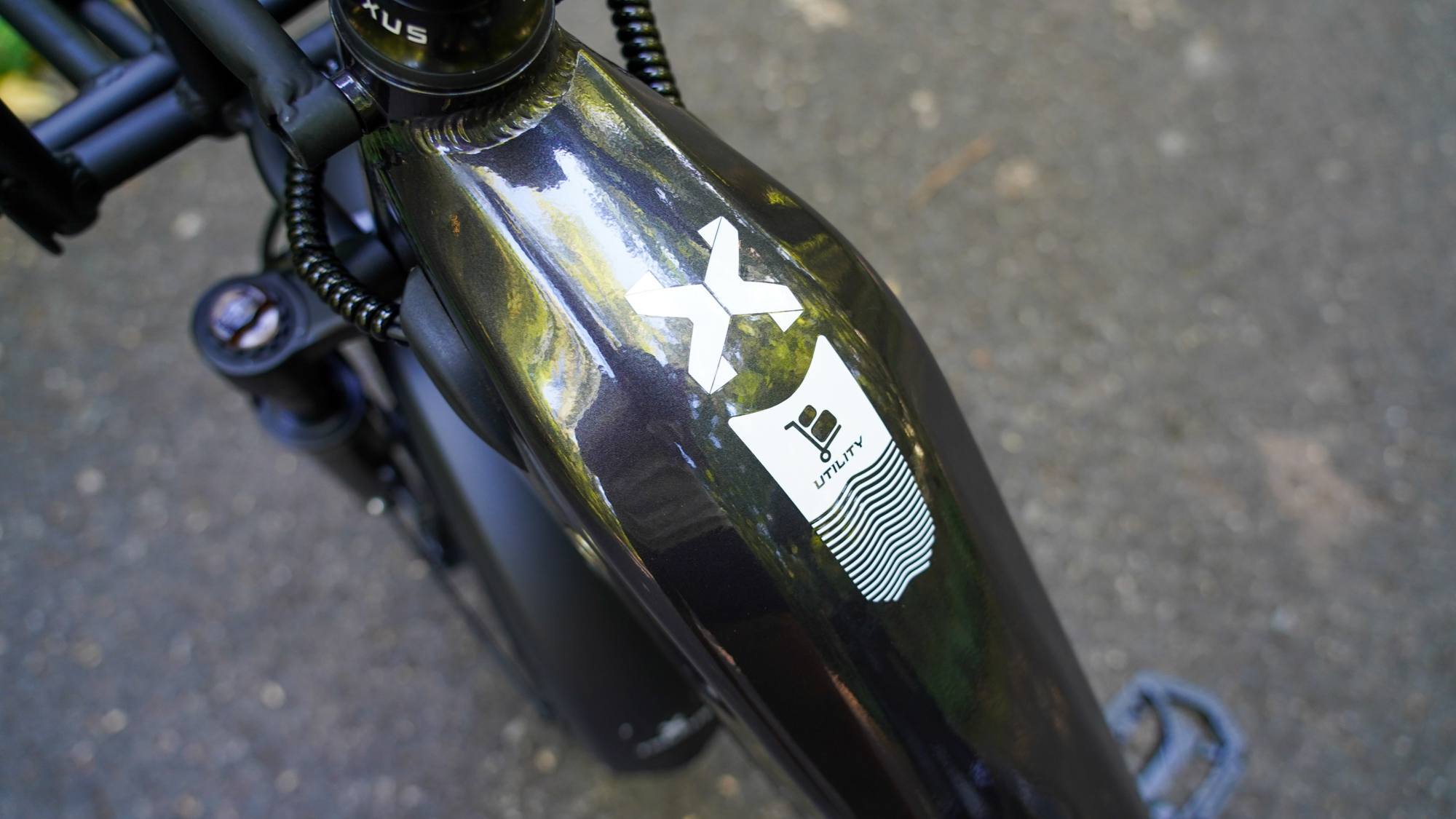
While not the longest cargo bike out there, the Lynx is heavy and quite burly, particularly in the front end.
The switchable torque and cadence mode, as explained above, is a neat but uncommon feature, especially for a bike at this price point. With the Lynx being a utility bike, I’d imagine that many users will primarily use the cadence mode, but the torque mode does offer more nuance and pedal control, which I appreciated on rides with little or no cargo. With that said, I doubt many Lynx riders will actively make use of the switchable technology, and perhaps it’s better used on recreational or sporting bikes.
Both modes are quick to engage, but I did occasionally experience some ‘ghost assistance’ in the cadence mode, where the motor continued briefly after I stopped pedalling. It’s a minor quirk and one that the rider would likely adapt to with regular use.
The Lynx’s display is large and easy to read, and the controls are intuitive. Safety features like brake lights and turn signals, rare at this price point, are welcome additions. I can’t say that I ever used the turn signals –habitually opting for hand signals instead–), but I can see how they’d be a helpful feature for riders uncomfortable with taking a hand off the bars.
Speaking of safety features, the hydraulic Tektro brakes, paired with a large 203mm rotor in the front, provided strong, responsive stopping power — a crucial feature for such a hefty bike. And I was also glad to see the use of thru-axles instead of quick-release skewers.
All 2024 Troxus e-bikes are now UL-certified, as well. This certification ensures the bike’s battery, motor, and electrical systems are safe, reliable, and protected against hazards like overheating or short circuits, which can lead to the catastrophic electrical fires e-mobility devices have become infamous for.
Overall, the bike offers a very stable, planted ride, even with a wiggly passenger on board. I did, however, find the bike to be rather unwieldy. While not the longest cargo bike out there, the Lynx is heavy and quite burly, particularly in the front end, making it tough to manoeuvre through tight city streets or weave around urban obstacles. It’s a tad cumbersome to park and to get moving again, and it certainly made me think twice about my parking options and the route I’d take to my destination.
Other drawbacks of the Lynx were small and easily remedied in future iterations of the Lynx: the chain frequently falls off its tensioner; the crankset sports an uncommonly wide axle to clear the frame, which makes for a less ergonomic pedalling motion; and the kickstand, while sturdy, is unrubberised which led to some deep scratches in my garage floor.
Verdict
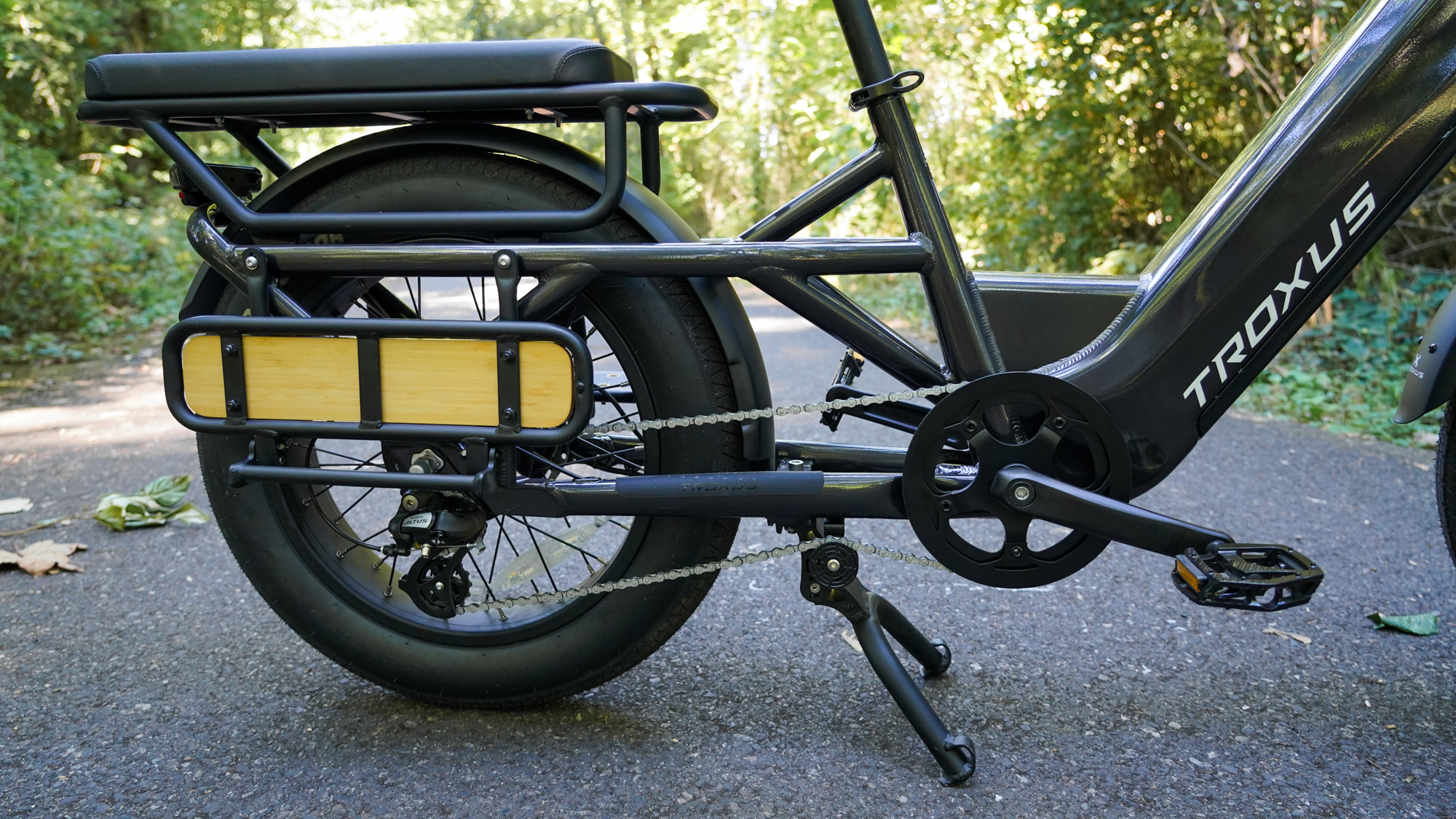
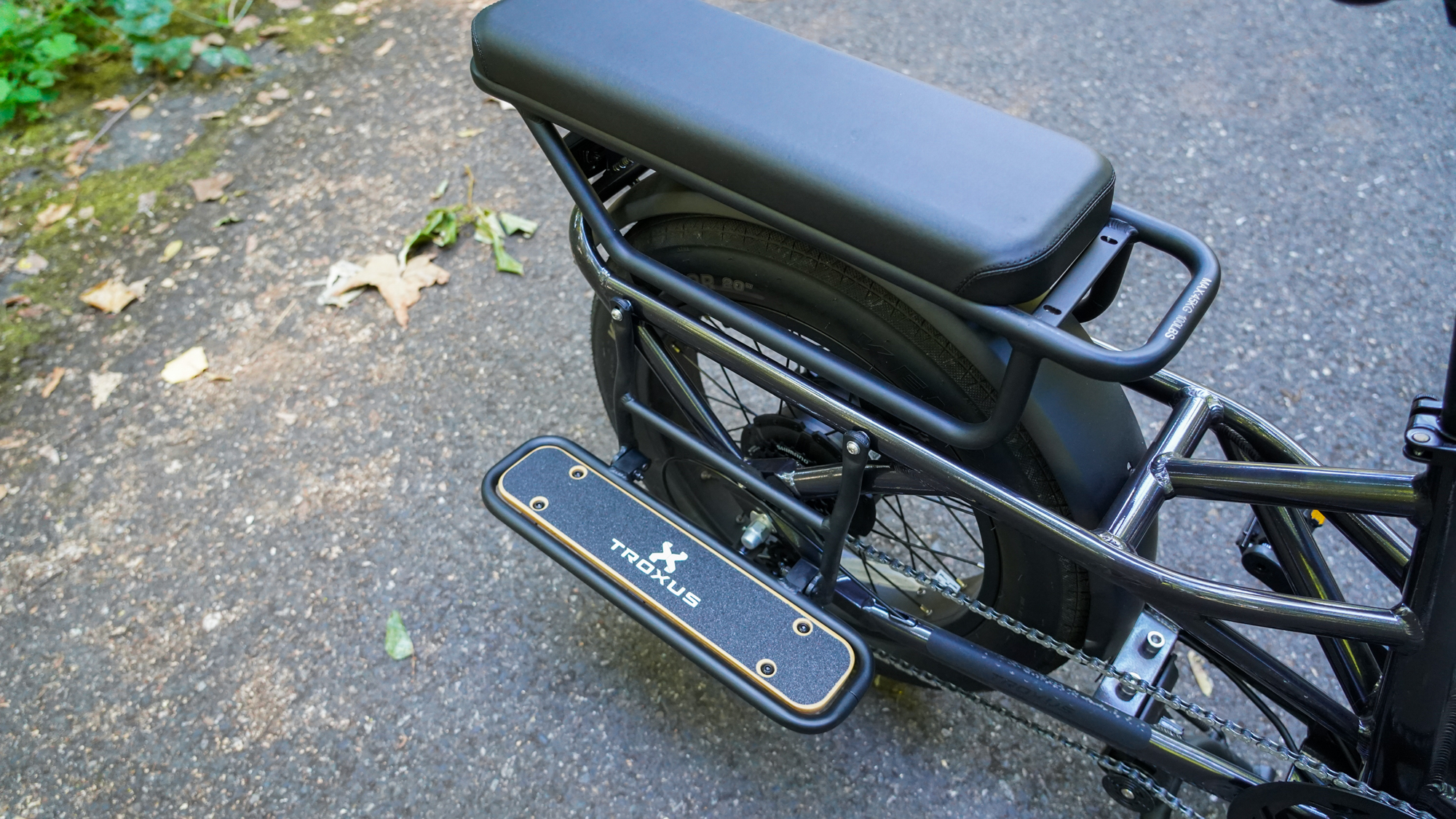
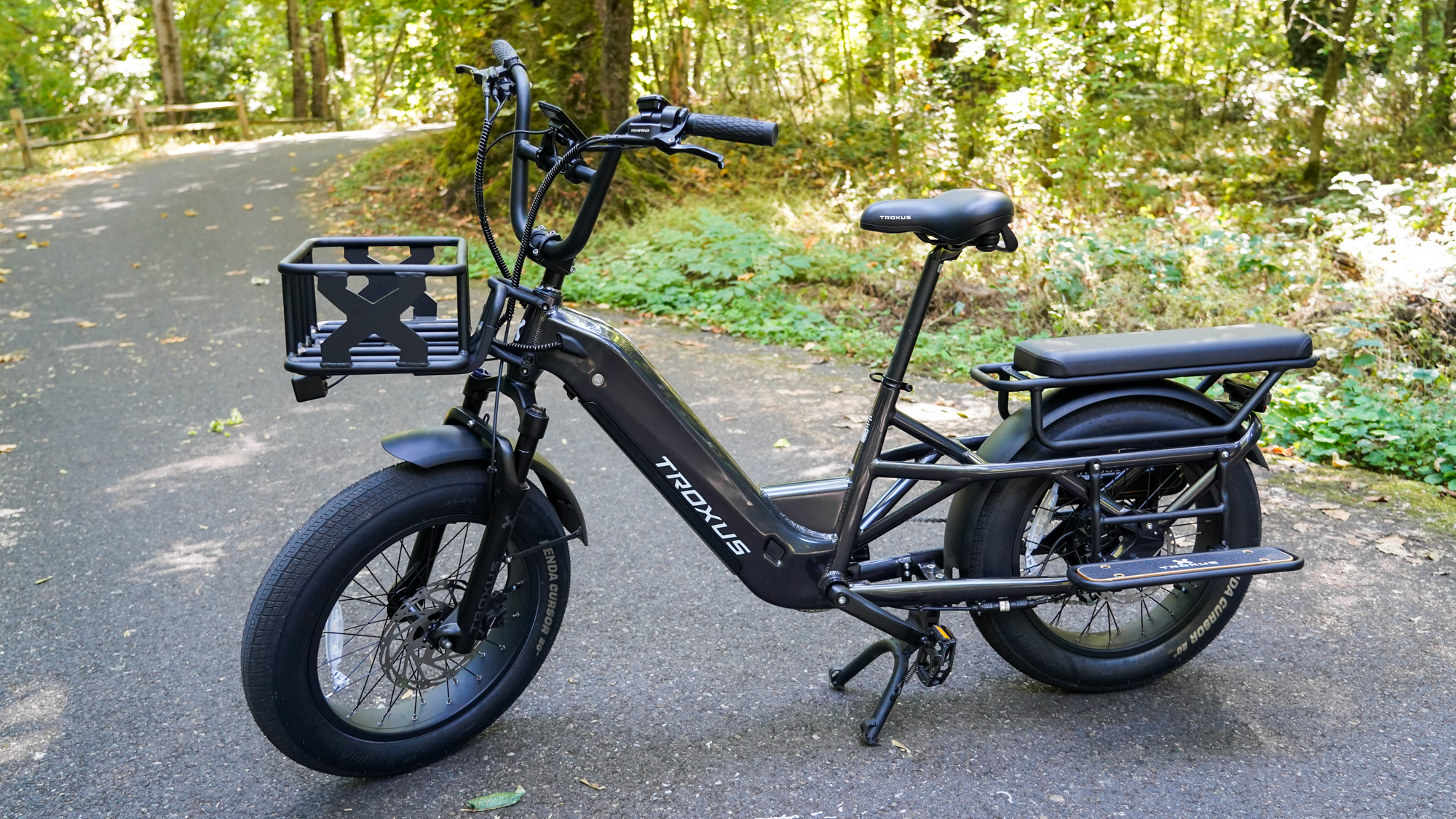
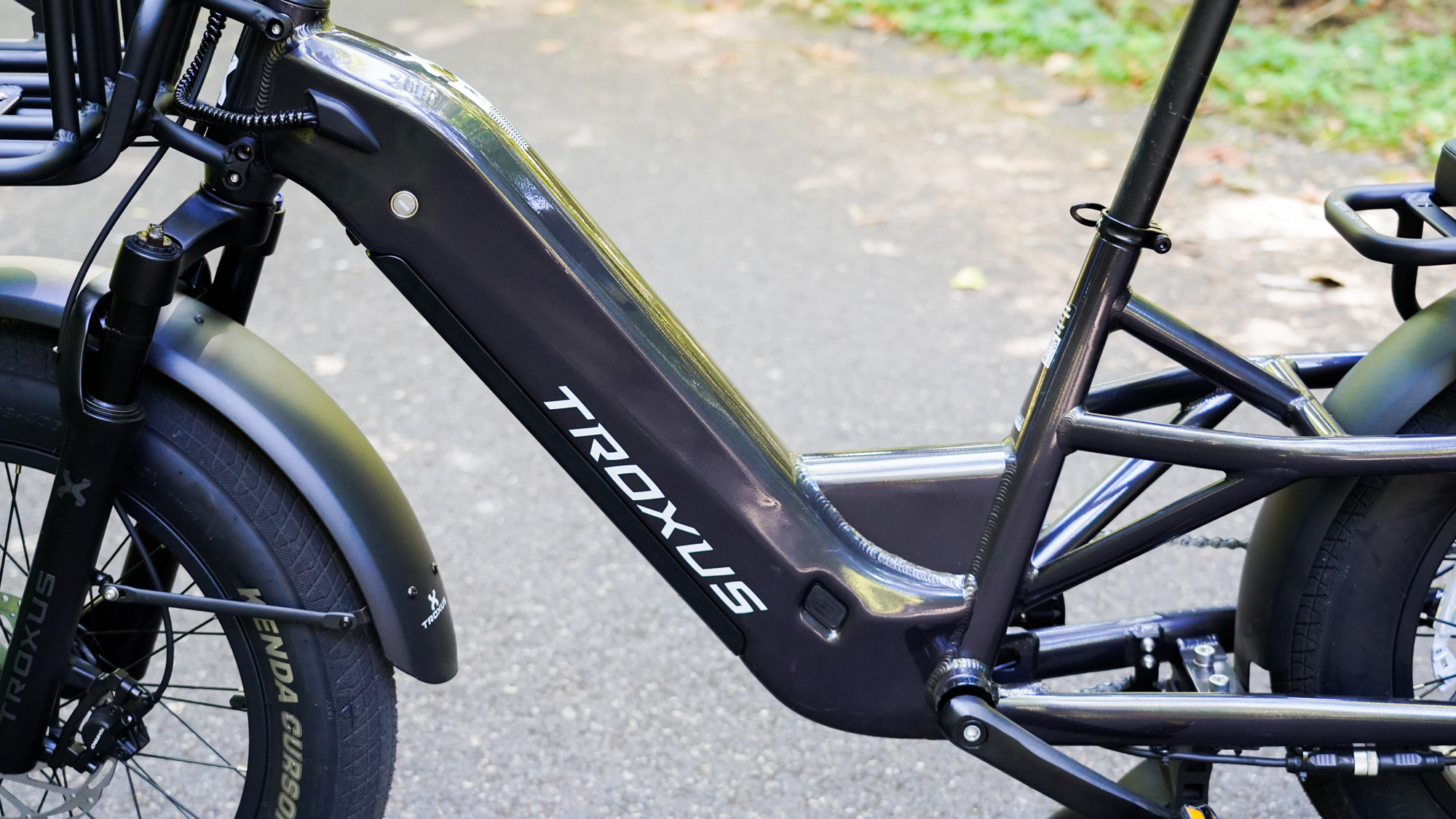
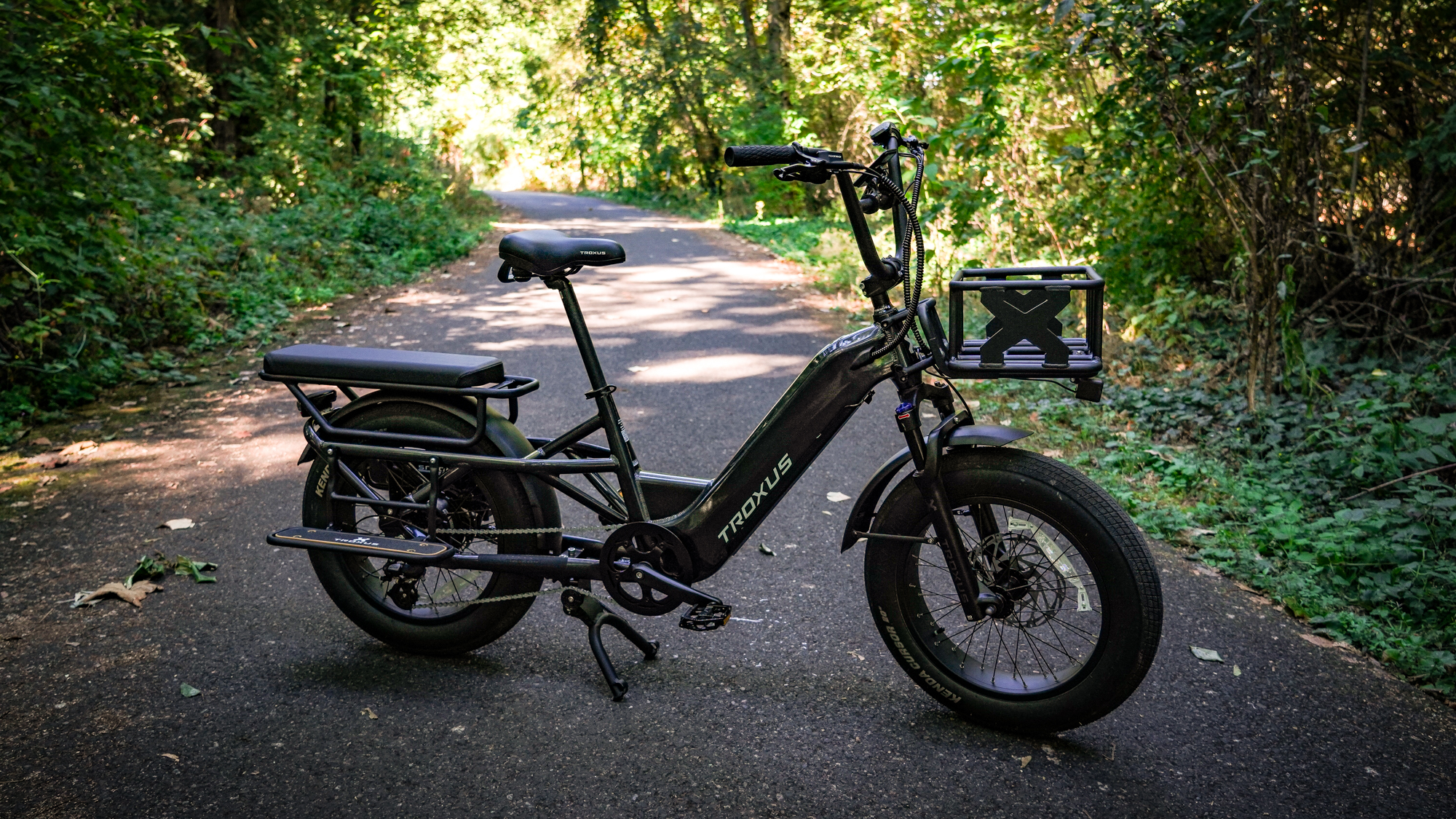
The Troxus Lynx Cargo E-Bike is a durable workhorse that delivers in stability, power and durability. It impressed with its advanced electronic features rarely seen at this price point, such as the switchable torque or cadence modes, brake lights and turn signals.
But where the bike excels in strength and durability, it falls short on manoeuvrability. Even at this sub-$3000 price point, there are other e-cargo bikes that offer a more refined balance of power, portability and manoeuvrability, which may be better suited for everyday use in an urban environment. (For this use, the Aventon Abound or Tern Quick Haul come to mind.)

Thank you for reading 20 articles this month* Join now for unlimited access
Enjoy your first month for just £1 / $1 / €1
*Read 5 free articles per month without a subscription

Join now for unlimited access
Try first month for just £1 / $1 / €1
Get The Leadout Newsletter
The latest race content, interviews, features, reviews and expert buying guides, direct to your inbox!

Cycling Weekly's North American Editor, Anne-Marije Rook is old school. She holds a degree in journalism and started out as a newspaper reporter — in print! She can even be seen bringing a pen and notepad to the press conference.
Originally from the Netherlands, she grew up a bike commuter and didn't find bike racing until her early twenties when living in Seattle, Washington. Strengthened by the many miles spent darting around Seattle's hilly streets on a steel single speed, Rook's progression in the sport was a quick one. As she competed at the elite level, her journalism career followed, and soon, she became a full-time cycling journalist. She's now been a journalist for two decades, including 12 years in cycling.
-
 'It took everything' - Puck Pieterse outclimbs Demi Vollering to win La Flèche Wallonne
'It took everything' - Puck Pieterse outclimbs Demi Vollering to win La Flèche WallonneDutch 22-year-old shows Classics pedigree with first one-day victory
By Tom Davidson Published
-
 Tadej Pogačar flies to dominant victory at La Flèche Wallonne
Tadej Pogačar flies to dominant victory at La Flèche WallonneSlovenian takes second win at Belgian classic ahead of Kévin Vauquelin and Tom Pidcock
By Tom Thewlis Published
-
 Colombian climbing star and former Vuelta a España winner Lucho Hererra could be investigated over murders of four people
Colombian climbing star and former Vuelta a España winner Lucho Hererra could be investigated over murders of four peopleA judge has called for an investigation into the former Vuelta winner who is alleged to have worked with paramilitary groups in Colombia
By Tom Thewlis Published
